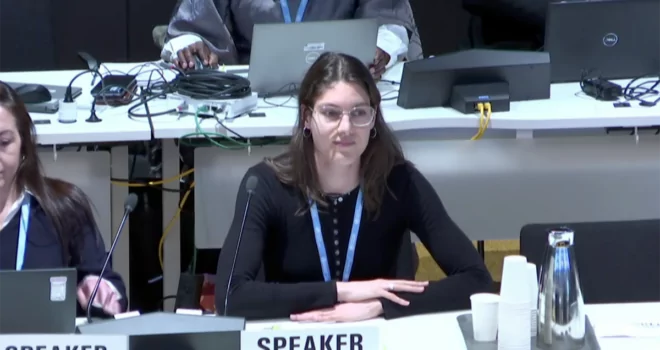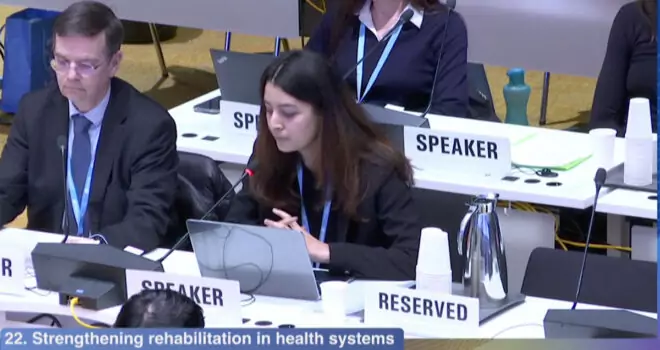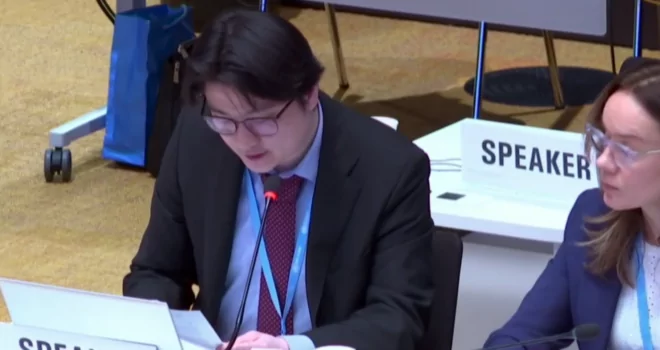This statement was delivered by Ms. Fernanda de Carvalho, our Advocacy Committee member for PAHO, at the Seventy-Sixth Session of the WHO Regional Committee for the Americas
SEVENTY-SIXTH SESSION OF THE REGIONAL COMMITTEE FOR THE AMERICAS
AGENDA ITEM 4.3
Honourable Chair,
Distinguished Delegates,
The World Heart Federation applauds the World Health Organization and its Member States for their Policy.
Climate change and air pollution are closely intertwined, with major sources of air pollution, such as fossil fuel combustion, also contributing significantly to greenhouse gas emissions.
Air pollution is widely recognized as a leading cause of noncommunicable diseases, especially cardiovascular disease, with nearly seven million deaths worldwide attributable to outdoor and indoor air pollution in 2019. Alarmingly, the burden of air pollution disproportionately impacts low- and middle-income countries, where over 90% of air pollution-related deaths occur.
The implementation of mitigation measures through effective cross-sector coordination can reduce greenhouse gas emissions while delivering health co-benefits and promoting health equity.
As such, WHF urges Member States to:
- Translate international agreements and initiatives on climate change and health – such as the Agenda for the Americas on Health, Environment, and Climate Change 2021-2030, the COP28 Declaration, and WHO Resolution WHA77.14 – into national and regional policies, strategies, and actions;
- Implement the recommendations outlined in the WHF Policy Brief on Air Pollution and World Heart Report 2024;
- Phase out fossil fuel use and subsidies as well as negotiate a Fossil Fuel Non-Proliferation Treaty; and
- Create environments that deliver co-benefits and promote health equity through intersectoral policies and interventions that reduce air pollution, promote healthy lifestyles, support active transportation, and build climate-resilient health systems, with a strong focus on addressing social, commercial, and environmental determinants of health.
Thank you.


